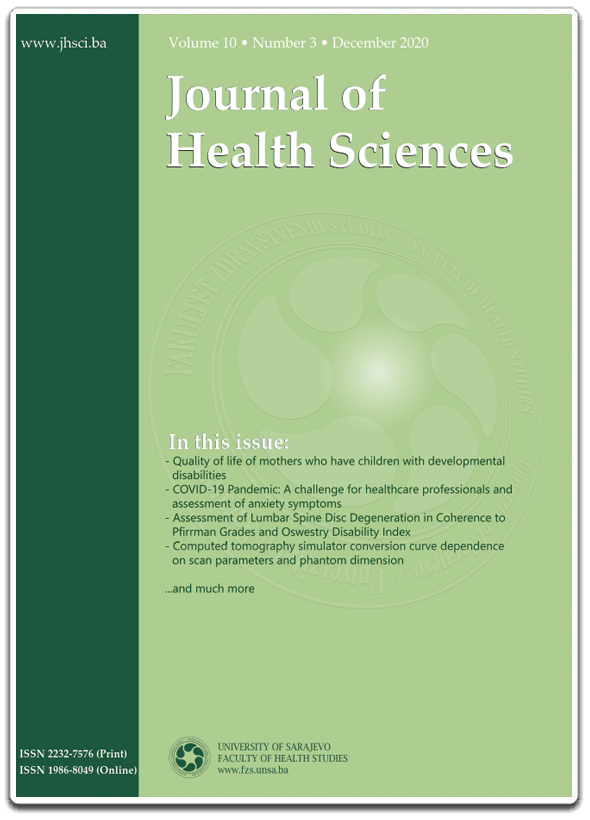Association of the metabolic syndrome components with the chronotype, level of daytime sleepiness and dispositional optimism in patients with arterial hypertension
DOI:
https://doi.org/10.17532/jhsci.2023.2160Keywords:
arterial hypertension, metabolic syndrome, chronotype, daytime sleepiness, dispositional optimismAbstract
Introduction: Arterial hypertension (AH) coexists with such conditions as obesity, insulin resistance/hyperinsulinemia and dyslipidemia, that is, interrelated metabolic disorders that characterize the metabolic syndrome (MS). The aim of the study was to establish relationships between components of MS and chronotype, level of daytime sleepiness, and dispositional optimism in patients with AH.
Methods: The study included 42 patients diagnosed with stage 2 essential AH. To study the chronotype, we used the validated questionnaire “Composite Scale of Morningness” and scales from official available sources. Dispositional optimism (LOT-R) was assessed using a questionnaire adapted from O.A. Sychova. Epworth scale was used to assess the severity day sleepiness. Laboratory parameters were determined using commercially available kits.
Results: The main components of the MS are found in more than half of the patients with AH, of which 61.90% have abdominal obesity, 42.86% have hypertriacylglycerolemia, 26.19% have hyperglycemia, and 66.67% have a decrease in HDL-C levels. Patients with AH with diagnosed components of MS have an evening chronotype, daytime sleepiness, and low optimism is diagnosed to the same extent as patients without MS. At the same time, evening (53.85%) and intermediate (38.46%) chronotypes are found in patients with abdominal obesity, and the frequency of daytime sleepiness registration, and a low level of optimism does not depend on the presence of abdominal obesity; patients with dyslipidemia are characterized by low optimism, evening and intermediate chronotypes, and severe daytime sleepiness; and a glucose level ≥5.6 mmol/l is registered in most patients with an evening chronotype.
Conclusion: The research conducted showed significant relationships between abdominal obesity, dyslipidemia, hyperglycemia and evening chronotype, daytime sleepiness, and low optimism in patients with AH.
Downloads

Downloads
Published
License
Copyright (c) 2023 Khrystyna Novak-Mazepa, Mariya Marushchak, Tetiana Tomchuk, Olena Gashynska, Tetiana Pastryk

This work is licensed under a Creative Commons Attribution 4.0 International License.










